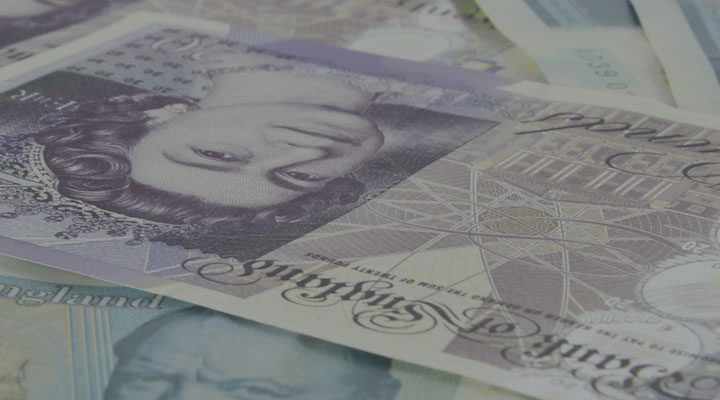Tax on savings account
UK savers can benefit from a certain amount of tax-free interest on their savings thanks to the personal savings allowance (PSA). But what is the personal savings allowance? Is interest on savings accounts taxable? Do you pay tax on savings accounts? What are the tax rates on savings? This page will answer these commonly asked questions, providing insights on tax-free savings accounts and how to pay tax on savings.
Tax on savings interest in the UK: Paying tax on savings depends on how much interest you earn and your tax band
Personal allowance: The personal savings allowance allows you to earn tax-free interest on your savings up to a certain limit
Tax-free savings: ISAs are an option if you’re looking for tax-free savings
The information provided here is for informational and educational purposes only and does not constitute financial advice. Please consult with a licensed financial adviser or professional before making any financial decisions. Your financial situation is unique, and the information provided may not be suitable for your specific circumstances. We are not liable for any financial decisions or actions you take based on this information.
Do I have to pay tax on my savings?
Do I pay tax on savings? Whether you pay tax on your savings depends on how much interest you receive, and which income tax band you fall into.
So, how much interest is tax-free for each income tax band? Low-income earners or non-taxpayers can benefit from the ‘starting rate’, a 0% tax on savings interest of up to £5,000. This means you can earn up to £5,000 in interest before paying tax. This is reduced for every £1 you earn over your personal allowance of £12,570 per year (2025/26). For example, if your income is £13,500, your 0% starting rate for savings would be £4,070. Basic rate taxpayers can earn up to £1,000 per year before paying tax on savings income, while higher rate (40%) taxpayers have a limit of £500.
It’s estimated that around 880,000 low-income pensioner households who are eligible for pension credit failed to claim it. Find out more about paying tax on savings when retired.
What is the personal savings allowance?
The personal savings allowance (PSA) is a tax allowance introduced by the UK government to reduce the tax burden on individuals’ savings income. This tax-free interest allowance was first introduced in April 2016 as part of a series of changes to simplify the UK tax system and encourage saving. The PSA is designed to make it easier for people to earn interest and income from their savings without having to pay tax on savings interest.
Your allowance depends on the rate of income tax you pay:
- The PSA is set at £1,000 per year for basic-rate taxpayers
- Higher-rate taxpayers can earn £500 per year with no tax
- Additional-rate taxpayers do not get a tax-free interest allowance
How much interest can I earn tax-free?
This table shows how much interest on savings is tax-free, indicating the threshold before you need to pay tax on your savings interest:
Tax Rate | Annual personal income, not from savings | Tax-free interest on savings |
|---|---|---|
No tax | £0 to £12,570 | Earn a maximum of £5,000 tax-free with the 0% starting rate for savings |
Basic rate taxpayer (20%) with a low income | £12,571 to £17,570 | Earn up to £5,000 tax-free with the 0% starting rate for savings and up to a further £1,000 tax-free with your PSA |
Basic rate taxpayer (20%) | £17,571 to £50,270 | Earn up to £1,000 interest tax-free with your PSA |
Higher rate taxpayer (40%) | £50,271 to £125,140 | Earn up to £500 interest tax-free with your PSA |
Additional rate taxpayer (45%) | Over £125,140 | Not eligible for any tax-free interest allowance |
Do I pay tax on savings account interest?
Whether you pay tax on a savings account depends on the interest you earn and your income tax band. In the UK, you can earn a certain amount of interest tax-free depending on your income.
Low-income earners or non-taxpayers can take advantage of the "starting rate," which allows them to earn up to £5,000 in savings interest tax-free. However, this amount decreases for every £1 earned above the annual personal allowance of £12,570 (for the 2025/26 tax year).
Basic-rate taxpayers can earn up to £1,000 in savings interest without paying tax, while higher-rate (40%) taxpayers have a limit of £500.
How much money can you have in a tax-free savings account?
For the 2025/26 tax year, you can contribute up to £20,000 into a tax-free Individual Savings Account (ISA). This amount can be split between different types of savings accounts, or you can choose to invest the full £20,000 in one account before having to pay tax on it.
Alongside tax-free savings accounts, you may also benefit from a Personal Savings Allowance (PSA), which lets you earn a certain amount of interest tax-free, depending on your income tax band.
Which savings accounts are tax-free?
Individual Savings Accounts (ISAs) provide a tax-free way to save and invest. The annual ISA allowance is £20,000, and you won’t have to pay tax on savings within this limit. This is the total amount you can deposit in one year, regardless of how many ISAs you hold.
There are several different types of ISA to consider, including:
- Cash ISAs – similar to a traditional savings account, there are three types of cash ISA: instant access cash ISA, regular savings cash ISA and fixed-rate cash ISA. With a cash ISA, you can save money and earn interest without having to pay income tax on it
- Stocks and shares ISAs are designed to encourage individuals to save and invest in a variety of financial assets, including stocks, shares, bonds, and mutual funds, while shielding any potential profits and income from taxation
- Innovative finance ISAs allow you to invest your money in peer-to-peer lending platforms or crowdfunding projects without paying tax on savings interest
- Lifetime ISAs are government-backed tax-free savings accounts designed to help individuals save for two specific purposes: buying their first home or saving for retirement
Do I have to notify HMRC of savings interest?
If you complete a Self Assessment tax return, you should report any interest earned on savings there. You will also need to register for Self Assessment if your income from savings and investments is over £10,000.
If you do not complete a Self Assessment, you’re unemployed, or do not get a pension, your bank or building society will automatically tell HMRC how much interest you received at the end of the year. HMRC will then tell you if you need to pay tax on savings interest and, if so, how to pay it.
According to HMRC, if you owe tax on savings interest, this will be paid through changes to your tax code. So you’ll get a lower personal allowance for income tax to pay any taxable savings interest. HMRC will look at how much you earned in savings interest last year and use this to determine your tax code next year if you went over your personal savings allowance. If you’ve had a tax code change in the past and are now earning less interest than your PSA, contact HMRC to make sure your 2025/26 tax code is correct.
Do banks inform HMRC of savings interest?
Yes, banks and building societies in the UK are required to inform HMRC of the interest you earn on your savings. At the end of each tax year, your bank will automatically report the interest paid to you, and HMRC will use this information to check whether you owe tax on it.
Does HMRC automatically deduct tax from savings?
No, HMRC doesn’t automatically deduct tax from savings interest in most cases. Instead, it relies on information provided by your bank. If you're earning interest on your savings, your bank will report this to HMRC at the end of the tax year.
What if I earn interest other than from my savings accounts?
Your personal savings allowance is not only applicable to your savings accounts. If you own corporate bonds or other financial products that also pay interest, this interest will be included in your total annual PSA. The same applies if you invest in a trust or a similar fund that pays interest on dividends.
How to claim back tax on savings interest
If you think you’ve paid too much tax on savings, for example because your savings interest has fallen below the allowance, you can claim a refund.
You can either do this through your Self Assessment tax return (if you’re required to submit one) or by completing form R40 if not. You must do this within four years of the end of the relevant tax year. It usually takes around six weeks for the tax to be refunded.
Apply for savings accounts online
If you want to quickly and easily open savings accounts online, consider using our marketplace.
Some of the most popular types of savings accounts we offer include fixed rate bonds, easy access accounts and notice accounts.
- Fixed rate bonds – these usually offer the most competitive rates of all account types and are a good option for long-term savings goals. Your money is locked in for a set period – typically between one and five years – and you won’t be able to access your cash until the agreed end date.
- Easy access savings accounts – easy access savings accounts are ideal if you’re looking for more flexibility, as you can withdraw money whenever you like. However, they tend to pay lower rates of interest.
- Notice accounts – these types of accounts combine the benefits of both fixed rate bonds and easy access accounts. They give you a degree of flexibility in that you only need to give a relatively short notice period to access your savings, but they also pay competitive rates of interest.
If you’re interested in opening a high interest savings account, find out more about how Raisin UK works, register for a Raisin UK Account (it’s free) and choose from a range of offers from our partner banks. Once your application is approved, you can sit back and watch your savings grow.
Save smarter with the Raisin UK newsletter!
What’s in it for me?
- Receive exclusive updates on market-leading rates
- Ensure you never miss a bonus offer
- Keep your finger on the pulse with the latest financial news



